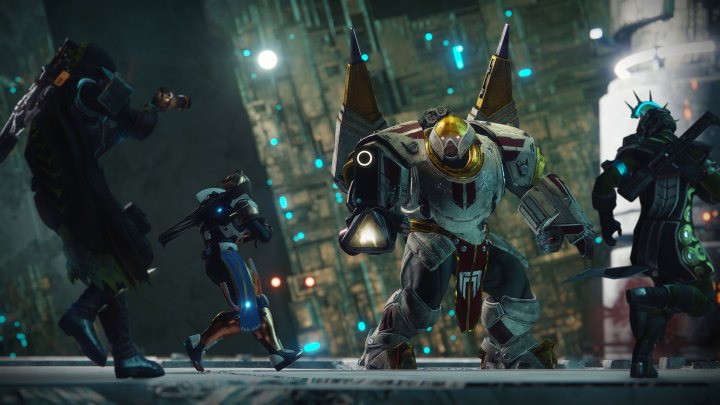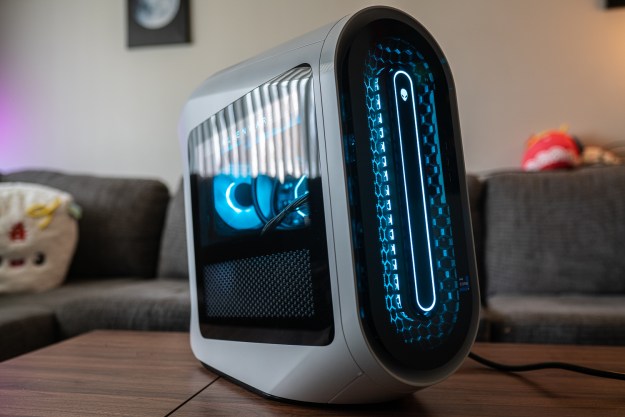
In the internet age, time is often fluid. It no longer matters quite so much when a TV show airs — chances are good you can catch it on Hulu, or Netflix, or your cable provider’s own streaming service. Similarly, many of us have had whatever music we want at our fingertips since the early 2000s. There’s no need to wait for your favorite hit to play on the radio, and, better yet, you never need to mourn a track’s gradual fade into obscurity after the fact.
While other media are trending toward play-at-your-convenience streaming, why do games like HQ Trivia command such tremendous popularity? “Appointment gaming,” or using timed events to get people playing en mass, has become increasingly popular in the past couple years. More importantly, by engineering games as a service from the start, developers have proven that this may be a sign of things to come.
Rise of the Smartphone Gameshow
At 3pm and 9pm (EST) hundreds of thousands of players tap a small blue-violet icon and prep for a battery of 12 questions with a mere ten seconds to answer each. The razor-thin time limit helps prevent cheating, but with such short rounds, the barrier to entry is incredibly small. Each game only takes a few minutes, but those tense moments offer a shot at a pretty sizable pot of cash.
For every batch of questions, there’s one purse split among the victors who answer all 12. Even with hundreds of winners, players will often walk away with at least a few bucks, making the time spent well worth it on the financial front. But the real kicker is how HQ Trivia locks players to a specific time. It’s almost unheard of, but having those set times has encouraged the game as a form of socializing. People flock together, trying to win in groups. Bound together in the moment, there’s an ineffable connection, a camaraderie shared with the other players.
Everyone joined together, doing the same thing at the same time may sound a little silly, but it’s far from a new concept. Water cooler chats at the office about the events — either real or televised — of the week has been a staple of American pop culture for decades. What’s changed, of course, is how these connections have become unmoored from place.
Digital Olympics
You can see that trend in more traditional games too. Blizzard’s Overwatch, for instance, singlehandedly eclipsed plenty of other mainstream shooters at least in part because of its appeal to urgency. While the game is, at its heart, just like almost any other multiplayer shooter, it breaks from the pack by offering seasonal events, special gameplay modes, and unique cosmetic loot celebrating everything from the Olympic Games to Halloween.

In 2016, Blizzard hosted its first Summer Games — digitally. Originally pegged to the 2016 Olympic games, the event added new modes like Lúcioball — a modified version of soccer, wherein everyone plays as the character Lúcio. The mode is available for less than a month, but it’s pulled in millions of excited players
Halloween, wintry holidays and more each get their own special event in Overwatch‘s calendar. And, much like the annual events of World of Warcraft, offer special bonuses and gear to players who join in on the festivities. The difference being, though, that for many these seasonal updates aren’t a small piece of a larger world, but a draw in themselves. There’s always a big rush to be a part of the festivities — and the outfits and gear that you collect during them can be used long after. That effectively turns the limited-time collectibles into a badge of honor you carry with you.
One Shot, One Kill
Last year’s Hitman has taken a similar approach to content. Normally, players can take their time to carefully explore and probe levels. This teaches them where foes will be, what items will be available, etc. Then, players can attempt to assassinate a series of targets in any number of ways. Because each locale is incredibly dense, and because there are so many different tricks or techniques to learn, it takes time to familiarize yourself with the map. After several successes, though, players can opt to pursue an “Elusive Target.”
These special missions are one-time only, and if you fail, they’re gone forever. Much like HQ Trivia, you can’t hop into one and expect to do well with just what you have before you. Your preparation starts well before and hinges on your working knowledge of the terrain, the mission, and your ability to use what you’ve learned to adapt as conditions change.
Hitman developer, IO Interactive has recently re-opened the original batch of elusive targets, but only for those who have never attempted one before. That exclusivity has led to players furiously scrambling to practice their technique and nab their target by the time limit. It’s one of the single best facets of the game and has kept players plenty engaged long after release. While this episodic version of Hitman has struggled to keep pace in sales, fans have heralded Elusive Targets as an excellent iteration on the game’s stealth-action assassination missions — testing every one of your skills in a frantic dash to garrote, bludgeon, or blast your unwitting victim.
En Masse
Destiny 2, though, represents the best translation of appointment gaming into the mainstream. Taking fan feedback on Destiny into account, Bungie has an aggressive content release schedule with updates every couple weeks. Because the game is MMO-esque, players will continue on their way as normal, until a new update hits. Then, Destiny 2 players make a mad dash to be the first to finish the new material.

It’s not too far flung from how some guilds have approached MMOs in the past, but with Destiny 2 (and the other games here), the difference is that this style of frantic, rushed play is encouraged by developers. There are achievements, special gear, and all kinds of other unlockables to reward intrepid players for their toil.
Curse of Osiris, a large recent expansion, came with a new “raid lair,” or a modification to a prior mission from the base game, with some additional content packed in to keep it engaging. Less than two hours after the expansion’s “Eater of Worlds” raid lair was available, a team of five players had already cinched their victory.
These games show that there’s huge potential for developing games as a service that you continue to participate in.
Such speedy consumption leaves open questions of how this type of model will work in the future. Fans have shown that they are not only hungry for the new but that they can consume and toss that new material aside far faster than it can be produced. So, at the very least, whether this model holds will depend on how quickly developers can produce content. HQ Trivia, for instance, is simple and can crank out new questions and live updates from its host with ease. Destiny 2, though, is a lot more involved and has been plagued by controversy over one thing or another practically since release.
Taken together, though, these games show that there’s huge potential for developing games not as something you sit-down and play once, but as a service that you continue to participate in, driven in part by new events and content released practically all the time. In a sense, it has pushed timers and energy mechanics of free-to-play games into larger releases and made the act of waiting part of the game itself. Sometimes it works, and sometimes it doesn’t, but either way, given how popular it can be, it’s hard to see developers dropping the strategy any time soon.


